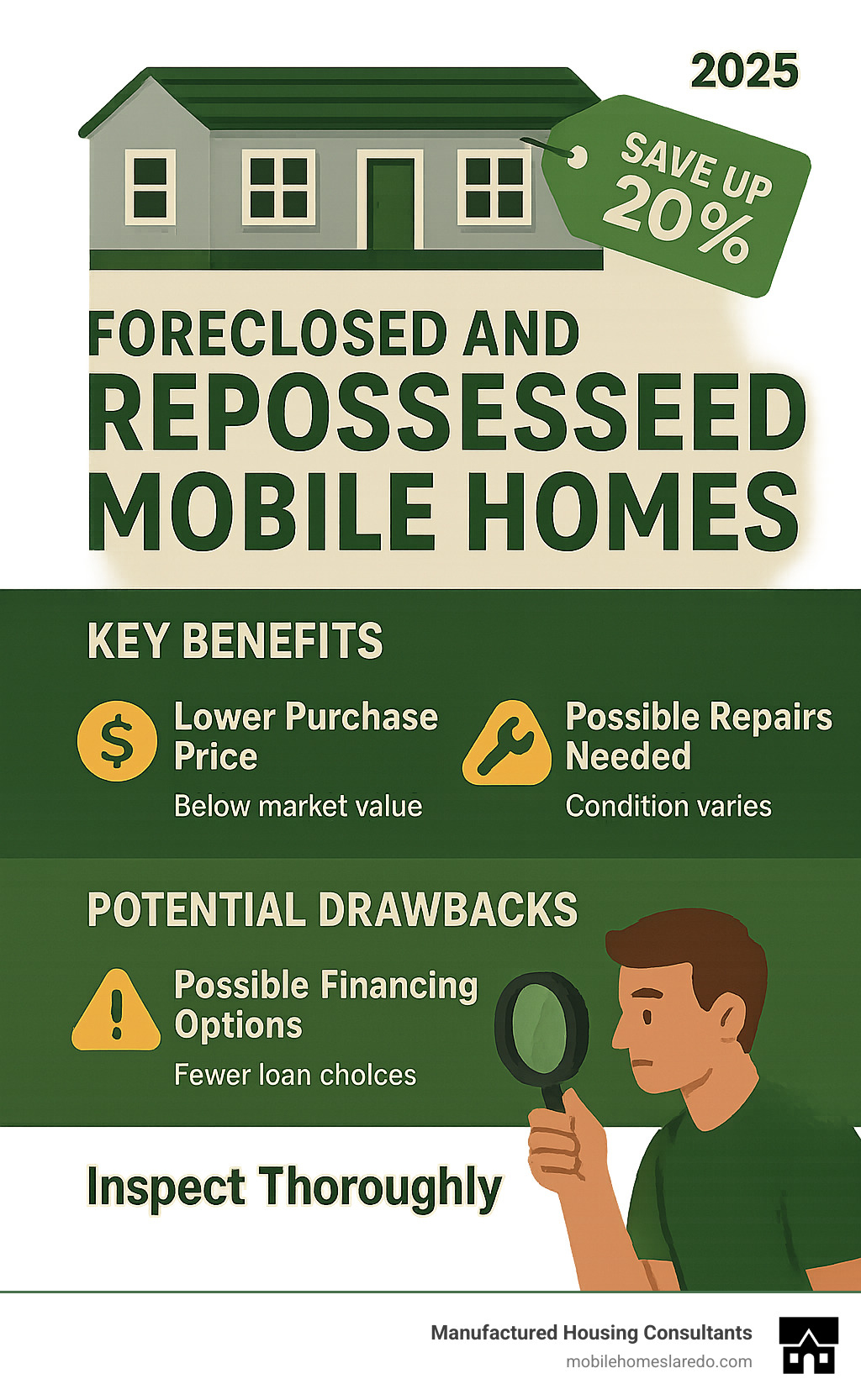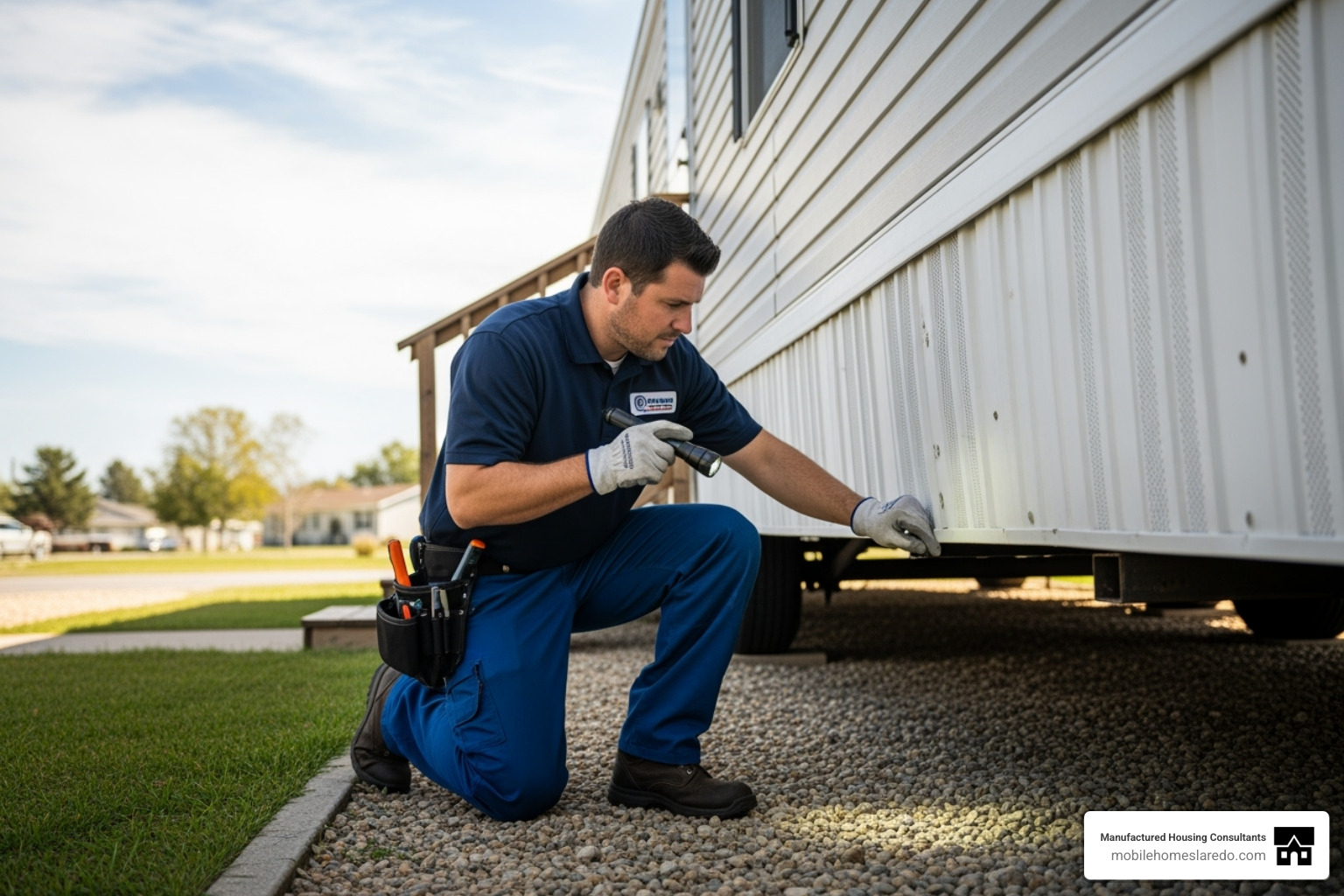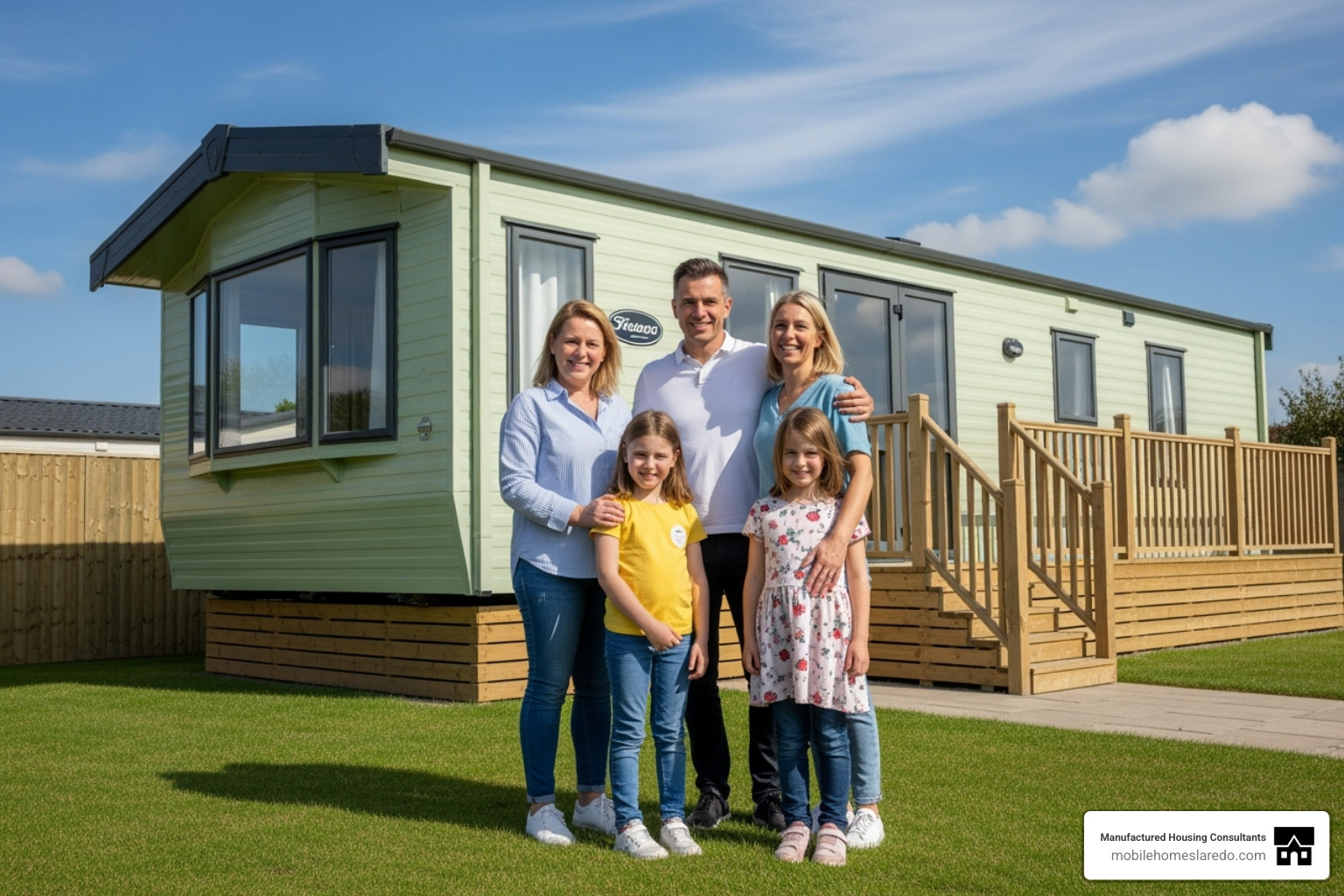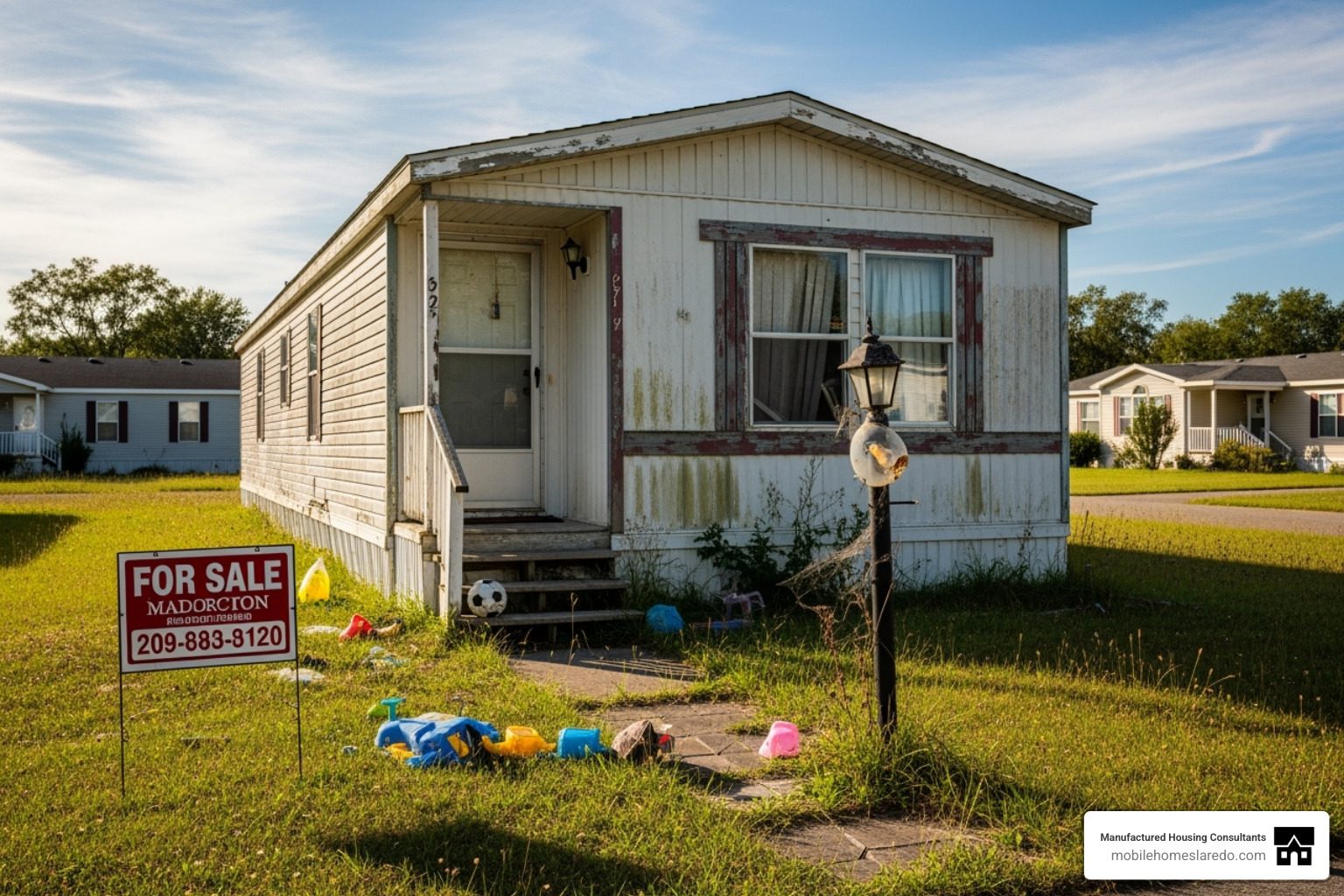Your Path to Affordable Homeownership
Foreclosed and repossessed mobile homes offer a powerful path to homeownership at deeply discounted prices – often 20% or more below market value. Here’s what you need to know:
Key Benefits:
- Significant cost savings – thousands less than new or traditional used homes
- Investment opportunities – potential for renovation and resale profits
- Negotiation flexibility – motivated sellers want quick sales
Main Challenges:
- “As-is” condition – may require repairs or renovations
- Limited financing options – traditional lenders often hesitate
- Potential legal complications – title issues or incomplete paperwork
Where to Find Them:
- Bank websites and REO departments
- Specialized mobile home dealers
- Foreclosure auction sites
- Local real estate agents
The process starts when homeowners can’t make their mortgage payments. Lenders repossess the home and sell it quickly to recover their losses. This creates opportunities for savvy buyers like you to score incredible deals on quality manufactured housing.
As one Texas dealer explains: “The number one reason customers look for used repo mobile homes is to save money. A customer can save thousands by finding a great deal on a used or repo mobile home.”
But buyer beware – these homes come with unique risks. Many are sold “as-is” with no warranties. You’ll need to inspect thoroughly and understand your financing options before diving in.

Foreclosed and repossessed mobile homes definitions:
- cheap manufactured homes for sale near me
- foreclosed mobile homes with land near me
- repossessed double wide mobile homes
The Ultimate Guide to Buying Foreclosed and Repossessed Mobile Homes
Finding your dream home doesn’t have to break the bank. Foreclosed and repossessed mobile homes offer an incredible opportunity to secure quality housing at prices that’ll make your wallet smile. But like any great opportunity, success lies in the details.
Let’s walk through everything you need to know to make a smart purchase that you’ll love for years to come.
Weighing the Pros and Cons of Foreclosed and Repossessed Mobile Homes
When we talk about foreclosed and repossessed mobile homes, we’re looking at homes that lenders have taken back due to loan defaults. But here’s where it gets interesting – the process differs depending on how your home is classified legally.
Repossession typically happens when a mobile home is considered personal property (think of it like a car). The lender can reclaim it relatively quickly without lengthy court proceedings. Foreclosure, on the other hand, occurs when the home is classified as real property – permanently attached to land. This involves more complex legal steps but achieves the same result: the lender recovers their investment.
Understanding this distinction matters because it affects everything from the buying process to your financing options.
The Sweet Rewards of Repo Home Ownership
The biggest draw? Significant savings that can reach 20% or more below market value. Banks aren’t emotionally attached to these properties – they want them gone quickly to recover their losses. This creates amazing negotiation flexibility for savvy buyers like you.
But the benefits go deeper than just upfront savings. These homes offer excellent investment potential. You might snag a bargain, invest in some improvements, and either flip it for profit or turn it into a steady rental income stream. Some buyers even purchase repo homes with cash for less than what they’d put down on a new home loan!
The Reality Check: What You Need to Know
Now for the honest conversation. Foreclosed and repossessed mobile homes typically come “as-is,” which means any needed repairs are your responsibility. Previous owners facing financial stress may have skipped maintenance, and unfortunately, some properties suffer intentional damage.
Financing challenges present another hurdle. Traditional lenders often hesitate with repo homes due to condition concerns. You might need specialized lenders, personal loans, or even cash to make your purchase happen.
How Repo Homes Stack Up Against New and Used Options
Let’s compare your choices side by side:
| Feature | Repossessed Mobile Home | New Mobile Home | Used Mobile Home (from Dealer) |
|---|---|---|---|
| Cost | Significantly lower, often 20%+ below market | Highest initial cost | Moderate, varies by age/condition |
| Condition | “As-is,” varies greatly, often needs repairs | Pristine with warranties | Generally good, often refurbished |
| Customization | Full customization after purchase (your expense) | Full customization during purchase | Limited, mostly cosmetic updates |
| Buying Process | Complex: inspections, legal checks, financing problems | Streamlined with dealer support | Relatively straightforward |
| Financing | Limited options, cash often preferred | Wide range of traditional options | Good options, fewer than new |
| Warranty | Typically none | Full manufacturer and dealer coverage | Limited or dealer-specific |
The trade-off is clear: lower prices come with more complexity and potential repair costs. For many buyers, the peace of mind and modern features of a new home outweigh the initial savings of a repo property.
For more insights into affordable options, explore our guide on Buying Used Mobile Homes.
Finding and Evaluating Foreclosed and Repossessed Mobile Homes
The hunt for your perfect repossessed mobile home starts with knowing where to look and what to examine once you find promising options.

Your Roadmap to Repo Home Success
The typical process moves quickly, so preparation is key. Start by finding potential properties through the sources we’ll discuss below. Once you spot something promising, do a drive-by to check the exterior and neighborhood feel.
Next comes the thorough inspection – absolutely non-negotiable with repo homes. While you’re arranging that, secure your financing options and get pre-approved if possible. Based on your inspection findings, make a competitive offer that accounts for any needed repairs.
Don’t skip the legal due diligence – title searches and paperwork verification protect your investment. Finally, close the deal with confidence knowing you’ve done your homework.
Working with experienced professionals like our team at Manufactured Housing Consultants can streamline this entire process, handling everything from paperwork to delivery logistics.
Where to Uncover Hidden Gems
Online listings and specialized websites offer the widest reach, but inventory changes rapidly. Some properties sell before they even appear online! Banks and lending institutions are often your best direct source since they’re the ones doing the repossessing. Check their REO departments or work with their preferred agents.
Specialized mobile home dealers like us often have access to repo inventory or can help you locate properties through our lender relationships. We work directly with financial institutions and maintain changing inventory of repossessed manufactured homes throughout Texas.
Foreclosure auctions can yield great deals, but they typically require cash payment and limit your inspection opportunities. Government agencies like VA or HUD occasionally have repossessed properties with specific sale conditions.
The Critical Inspection: Your Best Investment
This step can save you thousands and prevent major headaches. Always hire a professional inspector – they’ll spot issues you might miss.
Focus on structural integrity by checking the foundation, frame, and chassis for damage, rust, or shifting. Ensure the home sits level. Examine the roof condition carefully since roof repairs get expensive quickly. Look for leaks, missing materials, or soft spots.
Test all plumbing systems including faucets, toilets, and drainage. Check water pressure and inspect around pipes for leak damage. Evaluate the electrical systems by testing outlets, lights, and the main panel for safety issues.
Don’t overlook HVAC functionality – test both heating and cooling systems and note their age. Be vigilant about signs of water damage including stains, mold, or musty odors. Water damage can lead to costly structural problems and health concerns. Learn more about Signs of water damage.
Assess the overall interior and exterior condition including walls, floors, windows, and siding. If appliances are included, test every single one. Get repair estimates for any issues and compare these costs against your purchase price savings.
We ensure all our used and repo models meet habitability standards, but your independent inspection provides extra peace of mind. If you’re considering larger options, check out our guide on Repossessed Double Wide Mobile Homes.
Securing Financing and Navigating the Legal Maze
Once you’ve found your ideal repossessed mobile home, financing becomes your next trip. While it’s more challenging than financing new homes, plenty of options exist for determined buyers.
Financing Options That Actually Work
Traditional lenders often shy away from repo homes, but specialized lenders understand manufactured housing and are more open to these properties. We work with various lenders who specialize in this market and can help you explore your best options.
Personal loans work well for lower-priced homes, though expect higher interest rates and shorter terms. Cash purchases offer the smoothest path – no loan requirements, quick closings, and strong negotiating power. Sometimes a repo home costs about the same as a down payment on a new home loan, making cash very attractive.
Some sellers offer owner financing, though this is less common. It’s always worth asking about.
What Lenders Expect From You
Credit requirements vary significantly. While traditional mortgage lenders want higher scores, specialized mobile home lenders show more flexibility. Some accept scores as low as 580 for FHA loans, while others require 620-640 for conventional financing.
Down payment requirements depend on your credit, the property type, your debt-to-income ratio, and whether it’s your primary residence. Some lenders offer up to 100% financing for primary residences, though down payments often secure better terms.
You’ll need full homeowner’s insurance with the lender as loss payee. Ensure coverage reflects the home’s current value including any improvements. Lenders also need complete home details including year, make, dimensions, and purchase price.
We’re proud to offer financing for all credit types and even provide a FICO Score Improvement Program to help achieve your homeownership dreams. Learn more about How to Finance Your Mobile Home and Credit Repair for Home Loans.
Legal Considerations That Protect Your Investment
Title searches are absolutely critical. Verify the mobile home has a clear title with no existing liens from previous owners or creditors. Understand whether your home is classified as personal property or real property since this affects ownership transfer, taxation, and financing options.
Ensure you receive a proper Bill of Sale or title transfer that legally moves ownership from the lender to you. Check local requirements for any permits or registrations needed for mobile homes in your area.
The closing process varies by loan type. Home-only loans might close through the retailer or by mail, while real estate transactions typically require title companies or attorneys with notarized documents. Expect closing costs including origination, title application, and appraisal fees – most can be financed except the appraisal.
We always recommend consulting with a real estate attorney experienced in manufactured housing to ensure all paperwork protects your interests and complies with local requirements.
Ready to Find Your Diamond in the Rough?
You’ve made it through the complete journey of understanding foreclosed and repossessed mobile homes – from the initial excitement of potential savings to the nitty-gritty details of inspections and financing. It’s been quite a ride, hasn’t it? But here’s the thing: all this knowledge puts you in an incredibly powerful position to make a smart decision.

Let’s be honest – buying a repossessed mobile home isn’t for everyone. It takes patience, careful planning, and sometimes a willingness to roll up your sleeves. But for the right buyer? It can absolutely be that diamond in the rough you’re looking for.
The potential savings are real. We’re talking about discounts of 20% or more off market value. That’s thousands of dollars that stay in your pocket – money you can use for renovations, moving expenses, or simply building your savings account. For many families, this price difference is what makes homeownership possible in the first place.
The investment opportunities are exciting too. Maybe you’re thinking about flipping properties or creating rental income. A well-chosen repo home can be your entry point into real estate investing without the massive upfront costs typically required.
But let’s keep it real about the challenges. These homes come “as-is,” which means what you see is what you get. That gorgeous exterior might be hiding plumbing issues or electrical problems that weren’t obvious during your initial walkthrough. This is exactly why we kept hammering home the importance of professional inspections – they’re not optional, they’re essential.
Financing can feel like solving a puzzle with some pieces missing. Traditional lenders often get nervous about repo homes, which means you’ll need to get creative with specialized lenders, personal loans, or cash purchases. It’s not impossible, but it does require more legwork than financing a brand-new home.
The legal due diligence we discussed isn’t just paperwork – it’s your protection. Title searches, lien checks, and proper documentation ensure you actually own what you’re buying. Skip these steps, and you might find yourself in a legal mess that makes your “bargain” very expensive.
At Manufactured Housing Consultants, we’ve seen the entire spectrum of the Texas manufactured housing market. While our specialty is providing brand-new, high-quality homes at guaranteed lowest prices, we understand that foreclosed and repossessed mobile homes have their place in the market. Sometimes they’re exactly what a buyer needs.
We work with 11 top manufacturers and offer financing options for all credit types, including our FICO Score Improvement Program. For many of our customers, starting with a new home actually makes more financial sense than dealing with the uncertainties of a repo purchase. But we’re here to help you make the decision that’s right for your situation.
Your next step is simple: do your homework. Whether you decide to pursue a repossessed mobile home or explore our new inventory, make sure you’re working with people who understand the Texas market and have your best interests at heart.
Ready to see what’s available? Take a look at our current Bank Repos inventory, or give us a call to discuss your options. We’re here in Laredo, Texas, and we’re committed to making your path to homeownership as smooth as possible – whether that’s through a carefully chosen repo home or a brand-new manufactured home that comes with warranties and peace of mind.
Your perfect home is out there. Let’s find it together.

